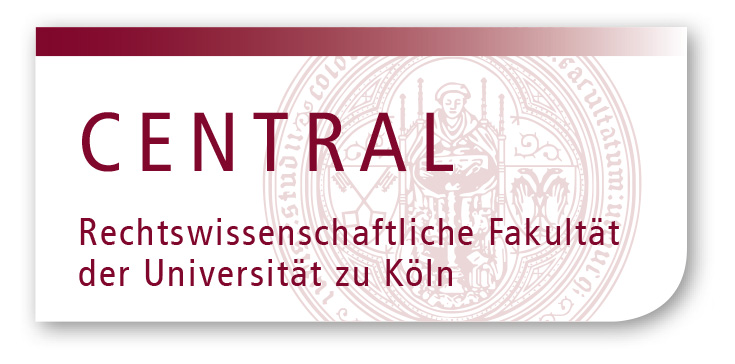CENTRAL Practice & Study Guides
Zur Unterstützung der Ausbildungsarbeit wurde am CENTRAL eine speziell auf Studierende ausgerichtete englischsprachige Lehrbuchreihe ins Leben gerufen, die „CENTRAL Practice and Study Guides“. Von ihnen sind bisher drei Bände zu den Themen „Transnational Law“, „Arbitration“ und „Export Trade“ erschienen.
Volume 1: Transnational Law in Commercial Legal Practice
CENTRAL Practice and Study Guides Vol. 1: Transnational Law in Commercial Legal Practice, quadis, 1999, reprinted 2003 (ISBN 3-934587-10-0), 166 p.
Codified systems of principles and rules for transnational contracts have been developed recently to facilitate cross-border trade and ease contractual negotiations amongst different nationals. They also serve as the core for future uniform legislation on contracts. This Volume features three of the most recent initiatives on transnational law which can be used in commercial legal practice:
- UNIDROIT Principles of International Commercial Contracts with an introduction by Michael Joachim Bonell,
- Principles of European Contract Law with an introduction by Ole Lando,
- CENTRAL-List of Principles, Rules and Standards of the Lex Mercatoria with an introduction by Klaus Peter Berger.
Volume 2: Understanding Transnational Commercial Arbitration
CENTRAL Practice and Study Guides Vol. 2: Understanding Transnational Commercial Arbitration, quadis, 2000 (ISBN 3-934587-11-9), 194 p.
This second volume of the CENTRAL Practice and Study Guides deals with the law and practice of transnational commercial arbitration. The contributions give a comprehensive insight into the subject, shedding light on the major aspects of the arbitral process.
Klaus Peter Berger provides an overview of the commercial arbitration as a means of dispute settlement in the international business, by discussing several basic aspects: the arbitration agreement, the applicable procedural law, the appointment of the arbitrators, the arbitral procedure, the rendering of the final award and its control by state courts. Pieter Sanders highlights the harmonising influence of the work of UNCITRAL on arbitration and conciliation. Yves Derains examines the rules and activity of the International Chamber of Commerce, seated in Paris. Hilmar Raeschke-Kessler discusses the arbitral tribunals’ methods in establishing the facts of the case, based on the Rules of Evidence of the International Bar Association. Volker Nienaber deals with the issue of recognition and enforcement of foreign arbitral awards. Finally, Friedrich Blase provides an overview of the teaching and training methods in transnational commercial arbitration.
The book is addressed specifically to law students and young practicing lawyers. It is ideal as a teaching tool at law schools as well as for in-house training courses of international law firms.
Materials for Volume 2: Understanding Transnational Commercial Arbitration
- UNCITRAL Arbitration Rules (2010)via UNCITRAL
- UNCITRAL Conciliation Rules (1980) via UNCITRAL
- IBA Rules of Evidence (2010) pdf-Document via IBA
- ICC Arbitration Rules (2012) via ICC
- Convention on the Recognition and Enforcement of Foreign Arbitral Awards (New York, 1958) via UNCITRAL
Volume 3: Law and Practice of Export Trade
CENTRAL Practice and Study Guides Vol. 3: Law and Practice of Export Trade, quadis, 2001 (ISBN 3-934587-12-7), 214 p.
In this third volume of the CENTRAL Practice and Study Guides, the CENTRAL offers insight into the legal framework of export and import trade when conducted under uniform law. Of particular importance are the 1980 Convention on Contracts for the International Sale of Goods (CISG), the ICC Incoterms 2000 as well as the ICC Uniform Customs and Practice for Documentary Credits (UCP 500) and the ICC Uniform Rules for Collections (URC 522).
Klaus Peter Berger introduces the business of export and import by highlighting the techniques and legal aspects of negotiating and drafting such contracts. Vikki Rogers examines the importance of the use of uniform terminology in international sales law. Franco Ferrari analyses the various scenarios in which the CISG will govern an export/import contract. Pilar Perales Viscasillas guides through the process of contract formation under the CISG and reveals its legal pitfalls. Burghard Piltz gives a comprehensive overview on the rights and obligations of both seller and buyer in a cross-border sales contract. Volker Nienaber presents the recently revised Incoterms 2000 which further define the duties of the parties in handling the goods. Finally, Friedrich Blase deals with the negotiation of the price under the CISG and leads through the documentary payment procedures which are generally governed by the UCP 500 and URC522.
Bestellung
Sie können die CENTRAL Practice and Study Guides hier bestellen.
